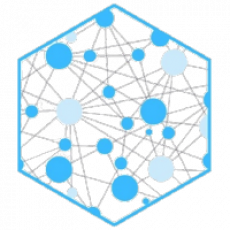IDAES
The Institute for the Design of Advanced Energy Systems (IDAES) project develops next-generation computational tools for Process Systems Engineering (PSE) of advanced energy systems to enable rapid design and optimization.
The IDAES Process Systems Engineering Framework represents a new approach for designing and optimizing innovative steady-state and dynamic processes by integrating an extensible, equation-oriented process model library with the Pyomo algebraic modeling language. Built specifically to enable rigorous large-scale mathematical optimization, the framework includes capabilities for conceptual design, steady-state and dynamic optimization, multi-scale modeling, uncertainty quantification, and the automated development of thermodynamic, physical property, and kinetic submodels from experimental data. IDAES provides:
- Flexible design approaches, which enable optimization over broad ranges of potential plant operation
- New approaches for utilizing process intensification concepts to enable the identification and scale-up of step-change technologies that are smaller, more modular, and more cost-effective
- Support for development, scale-up, and deployment of new energy technologies
- A modular framework and model library that supports large-scale optimization of advanced energy systems
- Machine learning-based parameter estimation tools
About Berkeley Lab
Founded in 1931 on the belief that the biggest scientific challenges are best addressed by teams, Lawrence Berkeley National Laboratory and its scientists have been recognized with 16 Nobel Prizes. Today, Berkeley Lab researchers develop sustainable energy and environmental solutions, create useful new materials, advance the frontiers of computing, and probe the mysteries of life, matter, and the universe. Scientists from around the world rely on the Lab’s facilities for their own discovery science. Berkeley Lab is a multiprogram national laboratory, managed by the University of California for the U.S. Department of Energy’s Office of Science.
DOE’s Office of Science is the single largest supporter of basic research in the physical sciences in the United States, and is working to address some of the most pressing challenges of our time. For more information, please visit energy.gov/science.










